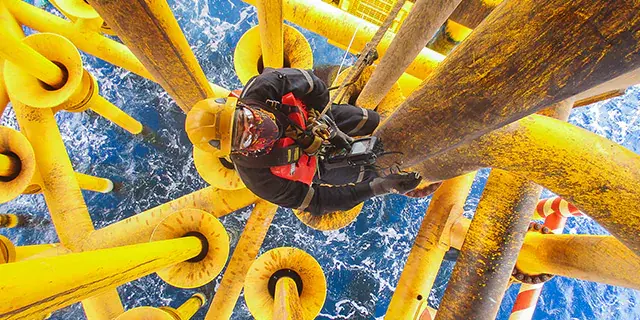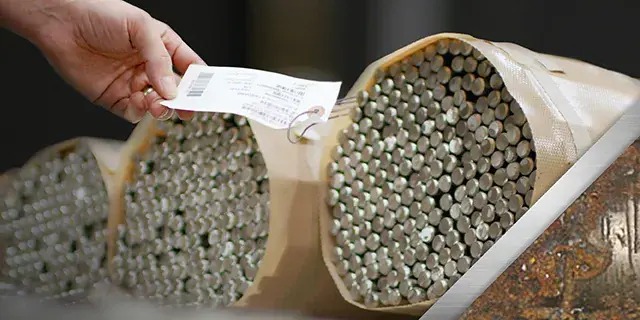Hose Routing in the Sub-Fab: What you need to know
In the semiconductor world, precision isn’t just a goal; it’s a necessity. When it comes to routing hoses in the sub-fab, precision plays a big role in performance, safety, and uptime. Many fabs have shifted to flexible lines between support equipment and cleanroom tools to save time and labor during maintenance and installation. But the real key? Routing them properly.
Why Routing Matters More Than What You Think
Routing isn’t just about getting from point A to point B. It directly affects how long a hose lasts and how well it performs. Tight spaces in sub-fabs often tempt us to over-bend hoses, but that can lead to kinks, damaged layers, and reduced flow. Bending too close to an end connection can also compromise the integrity of the hose.


And don’t forget about the temperature. Extreme heat or cold running through a hose can impact nearby surfaces and materials. In sub-fabs, space is limited, so finding the right path for each hose—without compromising performance—is crucial for a good routing.
The Role of Spacing in Temperature Control
Spacing becomes especially important when hoses carry fluids at extreme temperatures. Cold water lines placed too close together can create cold spots. Hot lines can do the same with heat. In sub-fabs, this often leads to condensation or even icing—both of which can cause downtime, safety, and performance issues.

At Swagelok Malaysia, we’ve worked with customers to solve this by designing simple physical spacers. These keep hoses from touching each other and help prevent hot or cold spots. It’s a straightforward fix, but it makes a big difference in reliability.
Understanding Bend Point: When Is It Safe to Bend a Hose?
Every hose is designed to bend, but only to a certain point. That point is called the minimum bend radius. Bend beyond it, and the hose starts to deform permanently. That means it won’t hold pressure the way it should, and its performance drops.


Insulated hoses follow the same rule. The insulation doesn’t change the bend radius, but it does affect how the insulation performs. When bent, the outer layer stretches and the inner layer compresses, reducing its effectiveness. It is recommended to maintain three times the minimum bend radius for insulated hoses. For example, if a hose has a 2-inch minimum bend radius, you can aim for 6 inches when it’s insulated.
When Insulation Becomes Essential
Temperature regulation is a critical part of semiconductor processes. Fluids often need to be heated or cooled at the tool, and they travel from chillers or heat exchangers in the sub-fab. Along the way, they can lose heat or cold.
 If the hose’s outer surface drops below the dew point, condensation occurs. The presence of an unknown liquid within the sub-fab environment poses significant risk and safety concerns, triggering system shutdowns and incurring substantial costs. Our solution involves utilizing insulation to ensure hose surfaces remain above the dew point, thereby preventing condensation.
If the hose’s outer surface drops below the dew point, condensation occurs. The presence of an unknown liquid within the sub-fab environment poses significant risk and safety concerns, triggering system shutdowns and incurring substantial costs. Our solution involves utilizing insulation to ensure hose surfaces remain above the dew point, thereby preventing condensation.
Standard insulation effectively maintains temperatures down to approximately -30°C, but some processes are colder. In such instances, Vacuum-Insulated Hose provides an ideal solution. These hoses eliminate convection heat transfer and maintain insulation down to -200°C. This makes them a proven solution for cryogenic applications and a reliable choice for future-ready fabs.
Swagelok® Hose Advisory Services

Routing hoses in a semiconductor sub-fab isn’t just mechanical—it’s strategic. Every detail, from bend point to insulation, affects performance, safety, and uptime. At Swagelok Malaysia, we offer Swagelok® Hose Advisory Services, provided by our experienced advisors who conduct on-site evaluations, uncover root causes, and provide clear, prioritized recommendations to keep your operations running smoothly.
For more information, contact us at malaysiaenquiry@swagelok.com
Related Articles

Pitting Corrosion vs. Crevice Corrosion
Corrosion—the deterioration of engineered materials by chemical interaction with their environment—is an extraordinarily costly problem.

Enhance Safety and Save with Optimized Materials
Cost optimization is one of the most important goals for owners of offshore oil and gas platforms and floating vessels—second only to ensuring safe and compliant operation throughout the platform’s life span.

Materials Matter: Selecting the Right Material for Corrosion Resistance
An offshore platform can have nearly 50,000 feet of tubing, more than 20,000 fluid system components, no fewer than 10,000 fittings, and as many as 8,000 mechanical connections.
Need more information, support, or quotation?
Give us a call at 603.8084.1818 or email us.